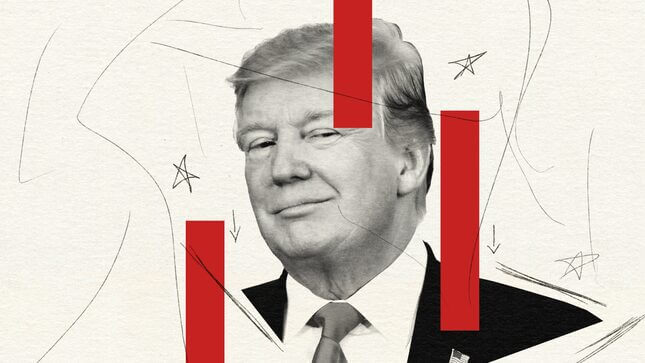
Illustration: Elena Scotti (Photos: Getty Images)
The morning after his inauguration in 2017, Donald Trump phoned the National Park Service, miffed about photos of the event that were already circulating online. The aerial shots of The National Mall depicted the patchy crowd that had turned out for Trump’s swearing-in, an audience that appeared particularly slim when juxtaposed with the unprecedented mass that had assembled for Barack Obama in 2009. Trump reportedly demanded that the agency release better photos, ones that captured what the administration would repeatedly claim was a “record-setting” assemblage, a “massive crowd of people,” as Trump would later say, that stretched all the way to the Washington Monument.
Eventually, after some nudging from then-White House press secretary Sean Spicer, the Park Service released another round of photos cropping out the thinning crowds. Estimates suggest that Trump’s event hosted just a third of the 1.8 million that turned out for Obama’s inauguration, and Spicer’s repeated insistence that there was actually a colossal crowd became an odd, dark joke. Though Trump’s followers had been plentiful enough to vote him into office—so plentiful, in fact, that they filled stadiums for the rallies that fueled Trump’s campaign the previous year—perhaps the paltry turnout was a better representation of his influence. Trump might get votes, but he couldn’t turn out more than a scattering of losers in MAGA hats. The movement, though visible on the ground, didn’t look like much from on high.
-

-

-

-

-

-

-

-

-

-

-

-

-

-

-

-

-

-

-

-

-

-

-

-

-

-

-

-

-

-

-

-

-

-

-

-

-

-

-

-








































